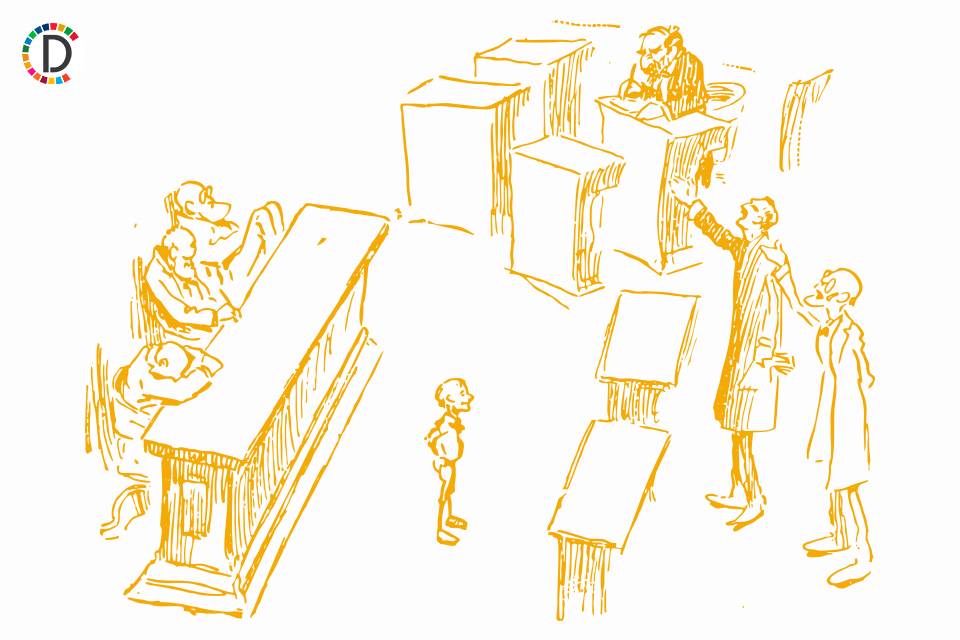Coal mining: SC to deal with legal issue if intra-court appeal can be filed in HC in criminal cases
We are concerned with the issue of maintainability of LPA before the division bench.

- Country:
- India
The Supreme Court, hearing an appeal against a Calcutta High Court order allowing CBI probe into an alleged coal mining and transportation case, Monday said it would first examine a legal issue whether an intra-court appeal can be entertained by the high court in a criminal matter against an order of a single judge bench.
A bench headed by Justice D Y Chandrachud, meanwhile, granted time to CBI to file its response to the appeal of Anup Majee, the director of a company engaged in purchase and sale of the dry fuel, which is an accused in a case of alleged illegal coal trading in the Asansol-Raniganj belt of West Bengal.
Majee, in his plea, has challenged the Calcutta High Court order which allowed the CBI to investigate a case of alleged illegal mining and transportation of coal in West Bengal without the State's consent.
In the proceedings conducted through video conferencing, the bench, also comprising Justice M R Shah, referred to an earlier judgement in which it was held that a letter patent appeal (LPA), also known as intra-court appeal, would lie in the high court against the order of a single judge bench in a criminal case. ''We are concerned with the issue of maintainability of LPA before the division bench. We are not concerned with subsequent development,'' the bench said. It adjourned the hearing on Majee's plea to March 10 after accepting the request of Solicitor General Tushar Mehta who was representing the CBI.
Earlier, the bench had issued notices to Centre and CBI and had sought their response by March 1 on the plea which claimed that the central probe agency lacked jurisdiction to lodge an FIR in the case after the withdrawal of general consent by the West Bengal government in 2018.
It, however, had refused to grant protection to Majee.
Senior advocate A M Singhvi, appearing for West Bengal government, had said that he supported the contention of Majee on the question of law as there was no consent given to the CBI to investigate the case after West Bengal withdrew its general consent.
On February 12, a division bench of the Calcutta High Court had stayed a single bench order that had restricted a CBI investigation into alleged illegal mining and transportation of coal to just "railway areas" of the state and rejected the plea of Majee for grant of protection from any coercive action against him.
It has been observed that if the process of investigation is stalled at this stage, material evidence which may have to be collected can get lost and the accused may be able to achieve the objective for which ''frivolous litigation'' has been filed.
The division bench of the high court had noted that the case pertains to illegal mining and transportation of coal through railways in connivance with officers of the Eastern Coalfield Limited, the CISF and some individuals, including petitioner Majee.
The High Court had said that the process of investigation against other accused arrayed in the FIR will also get jeopardised.
West Bengal government had contended that since permission to the CBI to carry out any probe in the state was withdrawn on November 16, 2018, no investigation for offences committed within its territorial jurisdiction can be conducted by the central agency.
CBI had submitted before the High Court that even if the state has withdrawn the consent for investigation of the cases by the CBI, the same cannot be withdrawn with reference to the railway areas.
The CBI is probing the alleged illegal trading of coal in the State and Majee is the director of a company engaged in purchase and sale of the dry fuel.
The CBI on November 28 last year carried out a massive search operation in a number of locations in four states -- West Bengal, Bihar, Jharkhand and Uttar Pradesh - after registering a case against Majee.
(This story has not been edited by Devdiscourse staff and is auto-generated from a syndicated feed.)
ALSO READ
Jharkhand: Over Rs 1 cr in cash seized from Kolkata-bound bus, three detained
BJP will push Jharkhand into backwardness if it returns to power: Kalpana Soren
Jailed ex-Jharkhand CM Hemant Soren not to contest from Dumka, JMM fields MLA Nalin
JMM announces two candidates in Jharkhand for Lok Sabha elections
INDIA bloc will win all 14 seats in Jharkhand: State Cong in-charge










